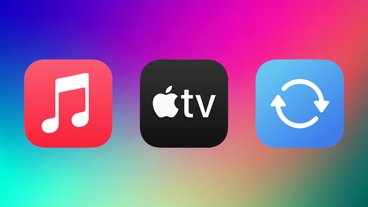Apple tightens iPhone App Store security
Earlier this month, iTunes was hit by account fraud that resulted in a few hundred users— a relatively tiny proportion of iTunes accounts— discovering as much as several hundred dollars' worth of unauthorized charges on their accounts.
Apple responded by immediately deleting specific developers who appeared to be using the fraudulent purchases to inflate their sales rank, and is now adding a new layer of security that requires account holders to enter their credit card security code on each new computer or device they register with their account.
According to a report by the blog Different District, iTunes prompts users for their security code the first time they make a purchase from a new computer or device. This prevents malicious users from guessing simple passwords on users' accounts and reselling the information to fraudulent buyers.
The previous report filed by AppleInsider detailed how auction sites in China were reselling the account information for iTunes users and encouraging buyers to immediately make as many purchases as possible before the user discovered the purchases. Requiring a security code should prevent that type of fraud in the future.]
Apple's opposition to jailbreaking
While Apple hadn't sued any users over jailbreaking, it did petition the court not to allow the exemption, warning that the argument for the exemption, advanced by the EFF, was simply pushing a ideological software agenda which made poor assumptions about how much external experimentation Apple's successful business model could withstand.
Google's Android Market already lacks the security of iTunes App Store, and that has resulted in a weak commercial market where a critical mass of uses simply don't pay for anything. That has discouraged significant commercial development for Android and left it with little more than adware-based titles and hobbyist apps.
In addition to complaining that widespread jailbreaking could result in piracy levels that turn the App Store into a failed market, Apple also noted that jailbreaking has an impact on "a number of essential safety and control functions," and that modified operating system software could result in overheating or in overcharging of the battery, resulting in actual physical damage to the device.
Apple also noted that a hacked baseband could result in operational damage to the mobile network, a claim which many critics scoff at despite the fact that baseband software is highly regulated for this very reason. Apple also complained that users who jailbreak their phones generate millions of software crash reports that are sent to the company to investigate at its own expense.
 Daniel Eran Dilger
Daniel Eran Dilger










 Malcolm Owen
Malcolm Owen
 William Gallagher and Mike Wuerthele
William Gallagher and Mike Wuerthele
 Christine McKee
Christine McKee
 William Gallagher
William Gallagher

 Marko Zivkovic
Marko Zivkovic









